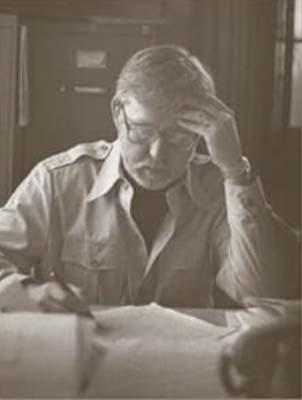Winter 2024 Featured Essay
Johannes Schröder in the Resistance Against Hitler
by Christiane Godt, Peter Godt, Hartmut Lehmann, and Silke Lehmann
 Abstract
Abstract
After joining the National Committee for a Free Germany, Military Chaplain Johannes Schröder, taken prisoner by the Soviets in Stalingrad, was able to address listeners in Germany over Radio Moscow from the fall of 1943 until the fall of 1945. More than eighty of his sermons and speeches have been preserved and published as a book in 2021. In this article, two of these pieces are published in an English translation, supplemented by an introduction that explains the historical context. Schröder openly demanded the overthrow of Hitler and the Nazi Regime in Germany. For Schröder, confessing German guilt was a precondition for the creation of a new Germany. While leaders of the Confessing Church like Dietrich Bonhoeffer and Martin Niemöller had been silenced by the Nazis, Schröder was able to explain the fundamental theological tenets that had been formulated at Barmen in 1934. Schröder’s speeches and sermons therefore offer an exciting new view of the resistance against Hitler.
Wehrmacht Chaplain Johannes Schröder became a Soviet prisoner of war on January 31, 1943. He was given the chance to appeal directly to listeners in Germany over Radio Moscow from autumn of 1943 to autumn of 1945 as a member of the National Committee for a Free Germany. His estate has passed down more than eighty addresses and sermons, which were published in 2021 by the Wallstein Verlag in Göttingen.1
Who was Chaplain Johannes Schröder? Why did he decide as a prisoner of war to become politically active in this unusual way? Could he speak completely freely, or was he a tool of communist propaganda? What risks did he take through his involvement? The volume containing his addresses and
sermons is supplemented with essays that pursue these questions. Here, in necessary brevity, is the most important information.

